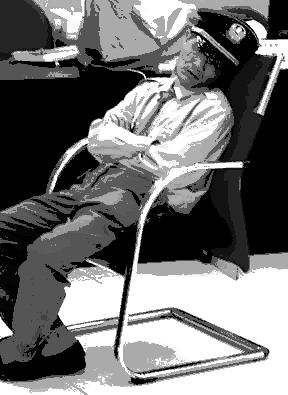App tracks sleep crisis
 Data collected by a smartphone app has revealed social pressures are depriving people of sleep, and creating a “global sleep crisis”.
Data collected by a smartphone app has revealed social pressures are depriving people of sleep, and creating a “global sleep crisis”.
Scientists from the University of Michigan used an app to track the sleep patterns of people around the world.
The app – Entrain, which was originally designed to help fight jetlag – gathered data on the age, gender, sleep patterns and the amount of natural light available to users in 100 countries.
“The effects of society on sleep remain largely unquantified,” the report’s authors wrote.
“We find that social pressures weaken and or conceal biological drives in the evening, leading individuals to delay their bedtime and shorten their sleep.”
They found that lack of sleep was linked largely to the time people went to bed, and that age was a key determining factor.
Middle-aged men registered the least amount of sleep, while across all age groups women were found to sleep about 30 minutes longer than men.
The average amount of sleep varies worldwide.
The shortest sleepers on average are in Singapore and Japan, where most get about seven hours 24 minutes.
The longest national average time spent is in the Netherlands, where sleepers get an average of in eight hours 12 minutes.
Researcher Dr Daniel Forger says there can be strong social pressure to stay up.
“Society is pushing us to stay up late, our [body] clocks are trying to get us up earlier and in the middle the amount of sleep is being sacrificed; that's what we think is going on in global sleep crisis,” he told the BBC.
“If you look at countries that are really getting less sleep then I'd spend less time worrying about alarm clocks and more about what people are doing at night - are they having big dinners at 22:00 or expected to go back to the office?”
While an average difference of just 48 minutes may seem inconsequential, even an extra half an hour of sleep has measurable impacts on cognitive function and health, the researchers said.
Missing out on a solid sleep can reduce cognitive abilities, the study found.
“Impaired sleep presents an immediate and pressing threat to human health,” it said.








 Print
Print